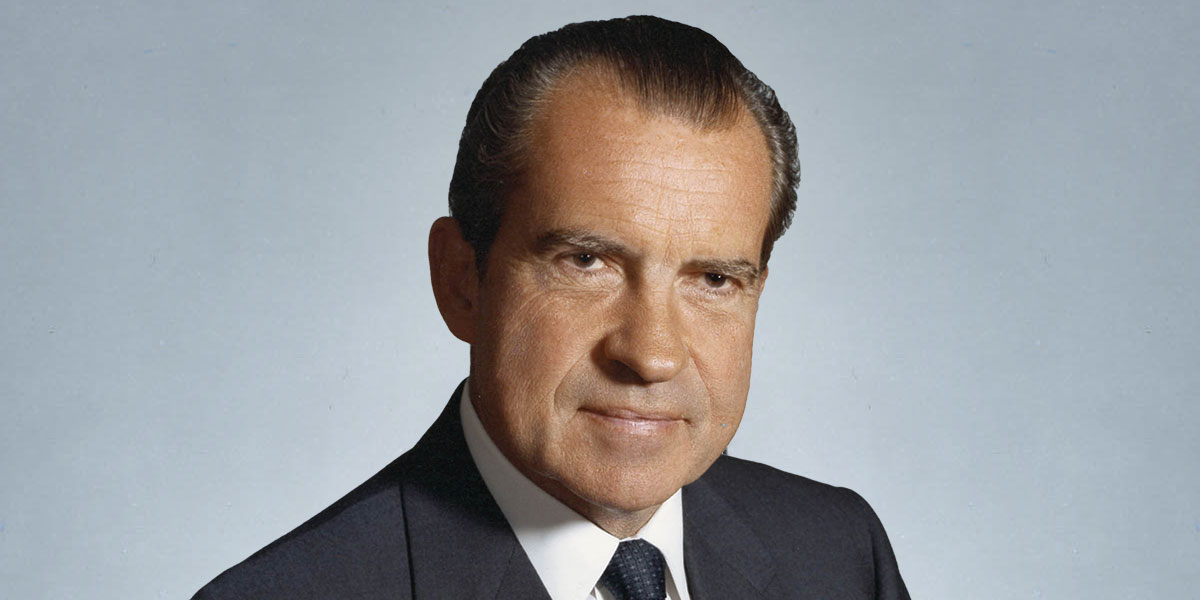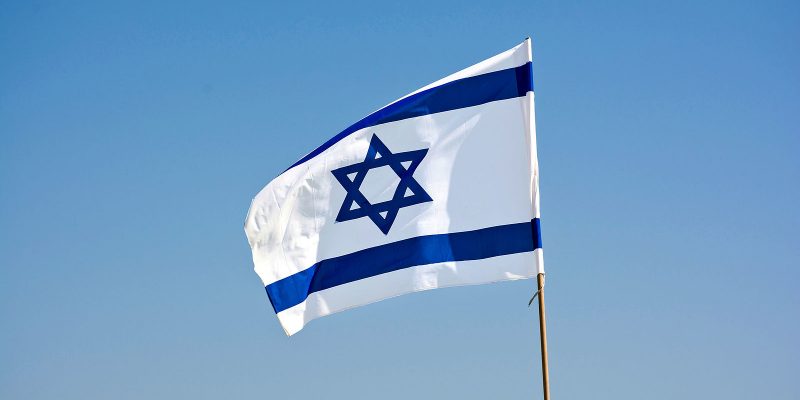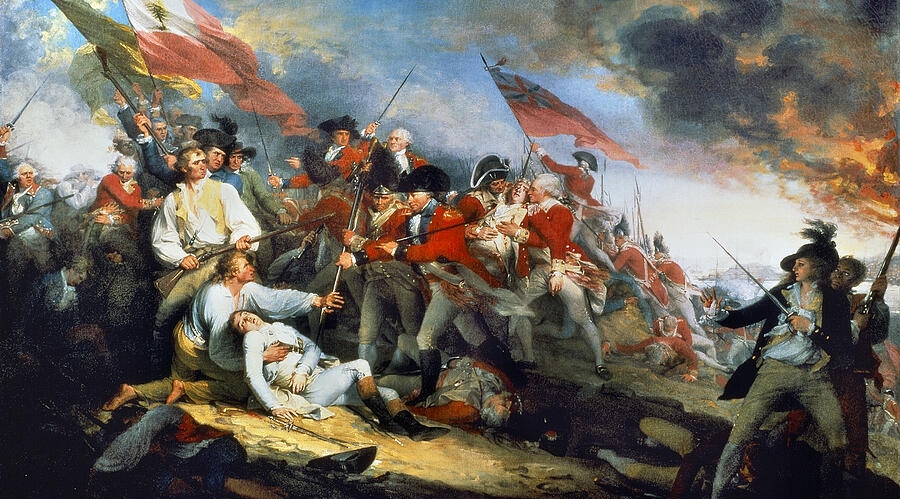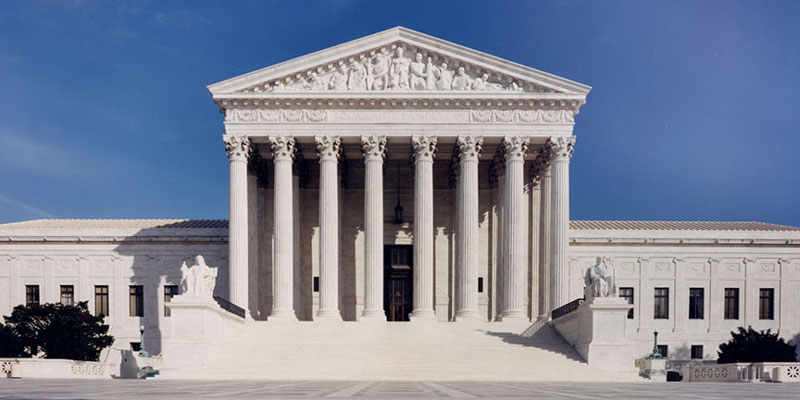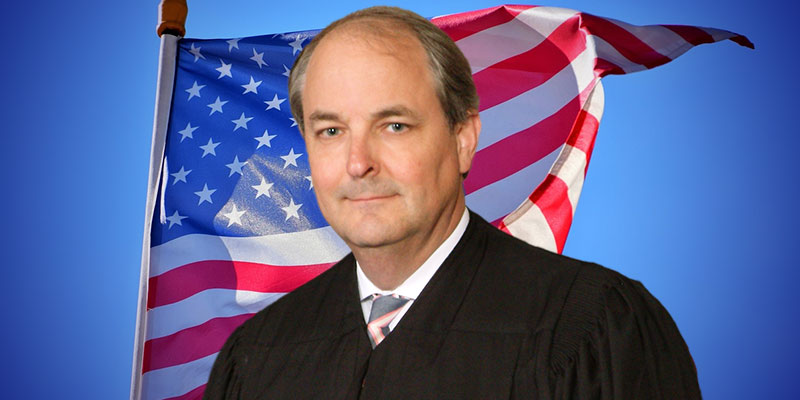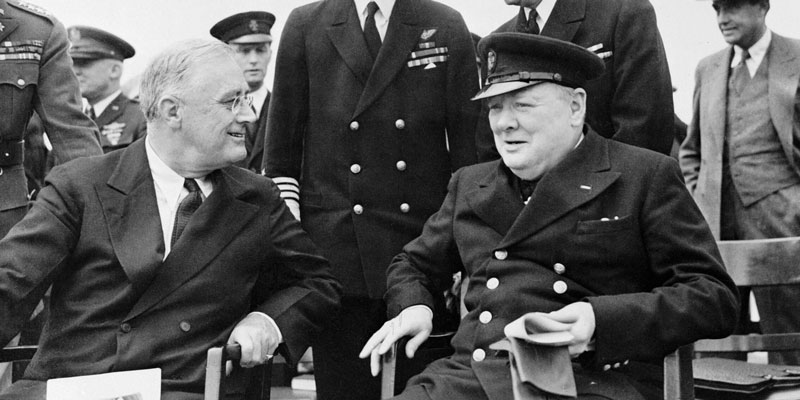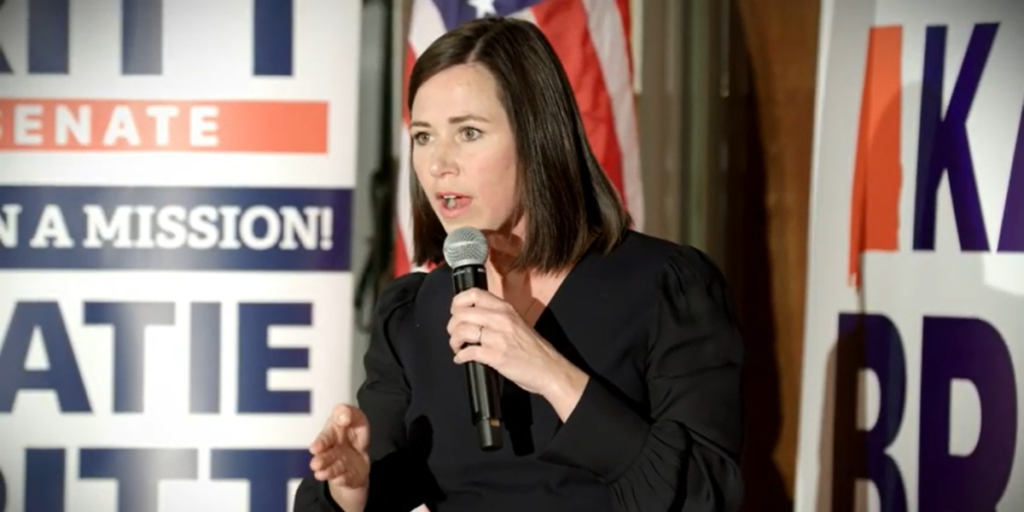The summer of 1974 in Washington, D.C. was a political bullfight; there was one bull, but a host of matadors, picadors and spectators galore just waiting to watch President Nixon in his last gasps of political power. Congressional hearings, articles of impeachment and an administration completely insular and unstable were all coming to a simultaneous head. Secretary of State Henry Kissinger metaphorically described this as the highest pinnacles of success descending into the deepest valleys of distress.
Over the course of the prior few years, President Nixon had won the largest landslide election victory to that point in history, successfully concluded American involvement in Vietnam, and achieved the monumental foreign policy objectives of detente with the USSR, stability in the Middle East, and rapprochement with China. But in August 1974, all these achievements were forgotten, and with an atmosphere of political intrigue thick with smiling hatred, the bull in the ring faced the final cut.
Almost everyone had deserted him as key members of his staff faced indictment, trials and prison. The Supreme Court unanimously ruled he had to provide tape recorded conversations to prosecutors, the House Judiciary Committee passed the first article of impeachment for obstruction of justice, and a group of key legislators informed him that he didn’t have the votes in the Senate to avoid removal from office. Nixon even called Alabama Governor George Wallace to enlist his support, but Wallace refused to intervene on his behalf with members of the Alabama congressional delegation and other Boll Weevil Democrats. After the call with Wallace, Nixon turned to chief of staff Alexander Haig and said, “Well, Al, there goes the presidency.” And so the true “man in the arena” faced the final curtain all alone.
The day before on national television, Nixon announced his intention to resign, and now, on the morning of August 9, in an impromptu moment, Nixon addressed the White House staff for the last time as president. In what has been described as rambling, unprepared, and certainly unscripted remarks, Nixon perhaps for the only time open his soul and summed up his life’s work. These off-the-cuff remarks were recorded, and for history’s sake, transcribed for all to see. In the midst of a rambling apology, Nixon reflected on his youth and his parents, and then, out of the blue and with no context, said:
Nobody will ever write a book, probably, about my mother. Well, I guess all of you would say this about your mother – my mother was a saint. And, I think of her, two boys dying of tuberculosis, nursing four others in order that she could take care of my older brother for three years in Arizona and seeing each of them die, and when they died, it was like one of her own. Yes, she will have no books written about her. But she was a saint.
An old saying, perhaps, said to comfort women in a different age and justify their sacrifices states: “the hand that rocks the cradle, rules the world.” So, Nixon’s mother, Hannah Milhous, at least for five-and-a-half years, ruled the world. No book has ever been written about her, but the life of Hannah Nixon and the impact she had on her son and his consequential role in American politics and international affairs is worth consideration.
Hannah Milhous was born in 1885 in Butlerville, Indiana, into a devout Quaker family of farmers. She was one of nine children; seven girls and two boys. Her father, Franklin, was an orchardist, who, seeing brighter days ahead, moved his entire family to California in 1897 to establish a tree nursery and orange grove with other Quakers in Whittier, California. While a “birthright” Quaker, Hannah’s branch of the faith expressed itself in a more evangelical bent, and at the age of 18, she had a religious experience that made her very devout and committed. Hannah was intelligent, and after completing high school, she attended Whittier College, where, by all accounts, she made good grades and was on the path to becoming a teacher.
No stranger to hard work, she helped her mother with various household tasks, assisted with her father’s farm, and stayed up late each night studying. Her life would be forever changed when, at a Quaker Valentine’s Day party, she met Frank Nixon. They feel in love and married four months later.
Hannah’s family never really approved of Frank and thought she had married beneath her. The fact that she married before finishing college was also a sore spot with Hannah’s family, who never seemed to warm up to Frank. But Hannah truly loved her husband, and, having completed her sophomore year of college, seemed ready to start her own family. Within a year of their marriage, Harold Nixon was born, followed by Richard in 1913. She had five sons in all, named after the early English kings; Richard, for the Richard the Lion Hearted.
By all accounts, Frank was uncouth, argumentative, and a tough father. Upon his marriage to Hannah, he converted to the Quaker faith but never truly left his Methodist roots. Hannah was the complete opposite – quiet and inclined to see both sides of an issue. She was also compassionate, and one area of disagreement with Frank was Hannah’s willingness to help the destitute. Frank wanted someone to work before receiving assistance, but Hannah would never turn away a tramp from the door and ran the household like a charitable operation. Even when the family had enough money to employ a “hired girl,” Hannah insisted that the servant eat with them at the table.
Hannah was religious and committed to her faith, but she was also had a deep sense of privacy and was not a show off when it came to piety. At night, she went into her closet to say her prayers. As was true of most Quakers, neither she nor Frank smoked, drank or cursed, and she expected that her children would accept these same restraints. Hannah’s influence was so pervasive that even years after her death, when forced to release transcripts of White House conversations, Nixon omitted all profanity and had inserted into its place “expletive deleted.” When asked about this later, Nixon said, “My mother would roll over in her grave if she knew I’d used such language.” But, such language was not unfamiliar to Hannah, and she even mentioned after Frank’s death that when frustrated and tense, Frank cursed like a sailor.
Having studied education, Hannah made sure her children had a good educational foundation; in Richard’s case, she taught him to read when he was five, and her piano playing gave him a love for music. While Richard wore hand-me-down clothes, contemporaries remember that his clothes were always spotlessly clean and neatly pressed. Hannah felt that cleanliness was next to Godliness and she made sure that her children looked nice, which earned the respect of her community and no doubt gave Richard a sense of security and confidence. Strangely enough, inasmuch as Hannah doted on her children, she was not very affectionate. She never hugged, kissed, or even told her children verbally that she loved them. She showed her love by doing loving things, and in her mind, her actions meant more than her words. When asked about this lack of maternal affection, Richard responded, “She did not need to tell me that she loved me. Her eyes expressed the love and warmth no words could possibly convey.” While psychologists have always pounced on this lack of motherly affection to explain Nixon’s inner soul, too much is often read into this. Kissinger jokingly referenced this and inferred that had Hannah Nixon been more emotive, Nixon would have been even more effective as a national leader.
She was also deeply committed to peace and was concerned about the victims of war. Hannah would accompany her mother, Almira, to the veterans’ hospital to visit with patients, read to them, and help them write letters home. Perhaps one of the hardest days in Nixon’s early life was after Pearl Harbor, when he decided to join the Navy. By this time, Nixon was married, in his mid-twenties, and had come to believe, against his Quaker upbringing, that opposing the war was aiding and abetting the enemy. He thought that the way to bring peace was to serve in the military. While his mother and grandmother had serious reservations, their Quaker faith allowed them to see his point, and while not directly blessing his military service, he felt there was at least tacit consent.
After several business failures, Frank Nixon, with the help of Hannah’s family, started a gas station, which was the only station on a stretch of road between Whittier and La Habra. The gas station became a family enterprise and grew to include a grocery store in which every member of the Nixon family worked. An excellent cook, Hannah sold cakes and pies at Nixon’s Market, getting up every morning at 4:00 to start the process. Richard worked in the store in various capacities, and when he was older, he would get up early each morning and drove to a farmers’ market to buy fresh produce to sell at the store. He also helped keep the records for the store, and in a small office would study and read until daylight. For most of Richard’s teenage life, the store was a constant presence. And while it was successful, there was always work to be done, and leisure time was infrequent, if not non-existent.
The store taught Nixon more than just the value of hard work, but also how small business worked. He observed the impact of governmental regulation and the terrors larger, bigger business could have on independent companies. The store also brought examples to him of customer relations and compassion. He observed his father giving credit to poorer laborers who became injured or out of work. And while Frank expected the objects of his charity to attempt to settle their accounts by working it off, Nixon felt the tension of balancing sound business practices with compassion. One story that especially influenced Nixon was Hannah’s handling of a shoplifter. Advised to prosecute the thief, Hannah opted to confront the lady and suggest that she repay the goods she had stolen over a period of time. Cornered, the shoplifter explained her dire situation, and Hannah agreed to a payment plan. While the shoplifter never came in the store again, she paid off her debt, and no one in the community ever knew of the incident.
Hannah was very strict and impressed upon her children truthfulness and honesty. Richard said and Edward echoed that as children, they much preferred a spanking to having their mother talk to them. Her lecture was stern and so emotionally draining that the confrontation left them ashamed, embarrassed, and determined not to repeat the experience or the offense. When Richard was caught eating grapes he’d picked on his way home from school, Hannah was appalled and make him take the pennies he had been saving to the vintner. Richard protested he had been saving his pennies for something special, but he nevertheless complied and presented the pennies to the farmer’s wife. Amid embarrassed protest, Richard made her accept his small penance.
Stealing was a significant offense and this incident, among others, impressed upon Richard the importance of financial honesty. In Nixon’s world view, taking something that was not yours constituted a major, cardinal sin. As a child, he had read about the Tea Pot Dome scandal that occurred under President Warren G. Harding and remarked to Hannah that he wanted to be a lawyer to help get rid of crooks. And from the Checkers speech to Watergate, it was important for him to stress that he was not a crook, he had not profited personally from his office, and he had not benefited financially. He considered the essence to violating the public trust was that an elected official got rich from the system; since Nixon never did this, he could not understand the impeachment process. How could he commit high crimes and misdemeanors when he had not taken a dime?
Tragedy struck twice in Hannah’s family with two events that forever changed her and, concomitantly, Richard. Seven-year-old Arthur contracted what was probably meningitis, and within a very short time was dead. Hannah was devastated by the loss and searched internally for strength to understand. She told a friend, “it is difficult at times to understand the ways of our Lord, but we know there is a plan and the best happens for each individual.” Frank came to believe that Arthur’s death was divine punishment for working too hard, trying to get ahead, and keeping the store open on Sunday. Never again would the market or gas station open on the Sabbath. Richard was greatly affected by the death, and it was the first time in his life – but certainly not the last – that he would face tragedy. For a time, he would simply sit and stare into space, silent and dry-eyed, internalizing the loss. Privately and away from others, he sobbed and thought of Arthur and how life would be for Hannah and the family had Arthur lived. This was the first time Nixon faced immortality, and in absorbing Arthur’s death, Nixon became distant and more immune to feelings and emotions.
Nixon’s older brother, Harold, had contracted tuberculosis several years before Arthur’s death. In an effort to assuage the effects of the disease, Hannah took Harold to Prescott, Arizona, where the dry climate and higher elevation was supposed to provide a cure. To reduce expenses, Hannah took in other patients and cared for them. For a period of three years, Hannah would be an infrequent part of Nixon’s life. While Frank would drive the 14-hour trip to Arizona for holidays and vacations, Hannah would not be available to provide maternal support to Richard and the other children. For two summers, Richard went to Arizona to help his mother care for Harold and worked at odds jobs to support his family. But, after a long battle, Harold died, and Richard’s emotions were again challenged. He once again became numb to his feelings and wholly unable to express his deep sense of loss. With the loss of two children, Hannah now focused all of her energy on Richard. It was as if all of her hopes and dreams for Arthur and Harold where transferred to Richard. She became his chief advocate and poured her life into encouraging and helping Richard. When Richard ran for President in 1960, a reporter asked Hannah if she would campaign for her son. She replied, “I’ve been campaigning for Richard for all of his life.” After the loss of her two sons, Richard’s success became Hannah’s struggle. She was committed to him and would provide the moral support he needed in all of his crises from that point on.
After finishing college, Nixon attended Duke Law School on a scholarship. Hannah would remark to a family friend that the letter advising Richard that he had not only been accepted, but would also receive a full scholarship made it the happiest day in her life; happier than the day of Nixon’s first vice presidential inauguration. Nixon, to this stage of his life, had lived with his parents, and perhaps the trip to North Carolina to attend school was a way to grow beyond his family and escape from both Hannah’s reach and the responsibilities of Frank Nixon’s Market. But, while Nixon completed law school, he was unable to find a suitable position with prominent firms in New York. At this point, Duke was a relatively new law school without the reputation and pedigree desired by national firms. In short, he had failed to transition himself from California to the East Coast. With his options limited, he returned home, and true to form, Hannah found a two-man law firm of family friends to offer Richard a job. But Richard was not willing to accept joining such a small practice, and much to Hannah’s dismay, took a month to respond to the offer of employment. With all of his options exhausted, he did accept, and the fact that he would now be closer to home was satisfying to Hannah.
While much has been written to insinuate that Pat Ryan was a rival to Hannah, this really was not the case. Shortly after meeting Pat, Nixon brought her to his home for the obligatory family visit. Hannah was a bit concerned as Pat was a teacher in a business college, fairly worldly, and very mature. In fact, Pat’s life somewhat mirrored Hannah’s. She was a hard worker and basically ran her family’s household after her mother died. So industrious was Pat that prior to marrying Richard, she would get up early in the morning to help Hannah bake cakes and pies for the store. This time of mother-in-law and daughter-in-law bonding cemented a relationship of great mutual respect and devotion to Richard. Agreeing to become a Quaker and have the wedding in the meeting house obviously helped the bond between Hannah and Pat. But small town life was not for Pat, and when Richard was offered the chance to work in Washington, DC, he left California in 1940 to join the Office of Price Administration. Once the war broke out, Nixon joined the Navy, working a desk job until finally seeing duty in the Pacific as an Air Transport Command officer. During this time, he had little interaction with Hannah other than to write occasionally. But given his mother’s Quaker pacifism and private emotions, it is hard to think that anything other than encouraging communications were exchanged.
As the legend goes, when Nixon was discharged from the Navy he was contacted by a group of business leaders to run for Congress against incumbent Democrat, Jerry Voorhis. Whether Hannah encouraged or discouraged Nixon’s initial run for office is unclear, but she was very proud of her son’s election and went to Washington to see him sworn in. Nixon’s rise to political prominence can only be described as meteoric, and it is hard to imagine that within just six years, he would rise from unknown private citizen to U.S. vice president.
As a freshman Congressman from California’s 12th District, receiving an appointment to the House Un-American Activities Committee was anything but a plush appointment. But from this committee, Nixon would be catapulted on the national scene in the fantastic matter of Alger Hiss and Whittaker Chambers. Initially when it appeared that Hiss would be vindicated and Chambers revealed to be deranged, Nixon stayed on the case. He was disquieted by Chamber’s adamance and was uncomfortable with Hiss’ smug demeanor. During this time, Hannah urged Richard to drop the matter. But Nixon outlined his belief that Chambers was telling the truth, and Hannah encouraged him to do what he believed was right. Had Nixon listened to his mother at the early stage of the Hiss-Chamber’s affair, history would have been vastly different and the angle of Nixon’s trajectory much lower.
Hannah does not appear to have played a prominent role in any of Nixon’s campaigns for Congress, Senate, or even vice president. She was certainly around, but more behind the scenes and providing moral support. She was a favorite with the Nixons’ daughters and frequently took care of them when Pat and Richard were traveling. No doubt she encouraged her friends and family in their support of her son, but there is no record of her comments on the campaigns other than to encourage her son and ask others to support him, based on her endorsement.
Nixon’s campaigns for Congress, Senate and vice president were difficult, to say the least, and created an impression that he would say anything to get elected. If the chief goal of a politician is to win office, then Nixon was wholly committed. His congressional and senatorial campaigns were California affairs, and in achieving success, he made a number of enemies who, in many instances, never forgave him. This was true not only of Democrats, but also of Republicans. So controversial was Nixon’s selection as vice president that many in the California delegation were appalled and worked against him. The sour taste Nixon left fomented a desire for revenge, and in an attempt to derail Nixon, information about a secret “slush” fund was leaked to the press. Having accepted nomination as Eisenhower’s vice president in July of 1952, only two months later Nixon faced a potential career-ending expose’. Enemies of Nixon leaked to the press a story that supporters had established a fund for Nixon’s personal use that contained thousands of dollars of improper payments. What started out as a third-rate, muckraking story grew to enormous proportions forcing Eisenhower and those around him to consider taking Nixon off of the ticket. To say the presidential campaign was in crisis was an understatement, and a poll of party regulars seemed to favor replacing Nixon. Even future Postmaster General Red Blount wrote Eisenhower a letter arguing that for the party to campaign on a platform on honesty and openness, Nixon needed to go. Hannah’s son was not about to give up without a fight. Thirty minutes of national television was purchased, and Nixon made the most crucial speech in his life. While Nixon always referred to it as the “Fund Speech” it became known forever as the “Checkers speech.” Addressing a national audience, Nixon reviewed his finances in detail and explained that he never benefited from the fund nor had contributors to the fund benefitted from Nixon. He ended by explaining that one supporter had sent his children a cocker spaniel named Checkers, and regardless of what anyone said, he was going to keep the dog. Without the approval or knowledge of Eisenhower, Nixon ended his speech by asking people to contact the Republican National Committee if they wanted him to stay on the ticket. The letters and telegrams came pouring in, and Nixon’s approval rating shot up, but now Eisenhower was confronted with a decision. At a political rally, Eisenhower joined Nixon and read this telegram to the crowd:
Dear General: I am trusting that the absolute truth may come out concerning the attack on Richard, and when it does, I am sure you will be guided right in your decision, to place implicit faith in his integrity and honestly. Best wishes from one who has known Richard longer than anyone else, His Mother.
To a roar of applause, Nixon was back on the ticket, perhaps not as a full partner, but no longer as a liability or concern. Hannah’s public endorsement of her son was her first time in the spotlight, and she would be a rallying point for Nixon supporters as an emotional touchstone to the 1952 election.
With the Fund crisis abated, the Republican ticket won big in November, and 39-year-old Richard Nixon began a journey which Sen. Bob Dole proclaimed as the start of “the Age of Nixon.” Hannah and Frank Nixon along with other members of the family made plans to witness Richard’s inauguration. In packing for the event, Hannah was careful to bring with her two ancient Milhous family Bibles, and it would be on these two Bibles that Richard would place his hand and take his oath of office. At a family dinner before the inaugural balls, Hannah gently pulled her now vice president son aside and out of sight of the others in attendance and placed a note in his hand. While he would not read it until after the conclusions of the evening’s festivities, he put the note in his wallet and carried it with him for the rest of his political life. The simple note read:
To Richard: You have gone far and we are proud of you always—I know that you will keep your relationship with your Maker as it should be for after all, that, as you must know, is the most important thing in this life. With love, Mother
Hannah’s role now was to support her son, and she was a frequent visitor to Washington. Other than her presence and attendance at several events only one story remains from Nixon’s time as vice president. Apparently, the stress and strain of Nixon’s political life took at great toll on Pat and the Nixon daughters. Knowing the importance of family and harking back to Hannah’s own life as a young mother and the role her mother played, Hannah became aware of tensions between Richard and Pat. She remarked to a family member that she was going to Washington to help out. When nudged to take sides between Richard and Pat, Hannah very matter of factly explained that her role was not to argue any one point of view but to simply to assist Pat. This she would do not as a searing mother-in-law but as a friend and grandmother adding stability to a busy, stressful household. Whatever the situation that temporarily alienated Pat and Richard, Hannah came to the rescue and in her quiet and simple manner brought peace and stability.
Compared to today, the process in 1960 of nominating a candidate was much more of a backroom, deal-making matter with party officials wielding most of the influence to the exclusion of ordinary voters. While there were several potential rivals to Nixon’s quest for the Republican nomination, none of them ever really materialized. So, on July 22, 1960, Richard Nixon received his party’s presidential nomination on the first ballot. Writing about this days later, Nixon commented that “Pat and I were happier then than we were ever to be in my political career.” And sharing this moment with Richard was Hannah, sitting in a special seat with her granddaughters and admiring this achievement.
Losing the race for president hurt and would have deterred others from even thinking of a political comeback, much less a comeback requiring a campaign for the inferior office of Governor of California. Encouraged by supporters, Nixon decided to run, but he simply didn’t have the heart, and instead of embarking on a comeback, another defeat was tallied. When he entered the race, polls showed him ahead by 16 points, but as the campaign continued, Nixon was challenged by the far-right wing of the party, which seethed over his disavowal of Sen. Joseph McCarthy in 1954. Some prominent California Republicans, still not trusting Nixon from inter-party feud days, even endorsed the Democrat. On election night, the man who had come within an eye lash of leading the free world, would lose hard. At 49 and now rejected twice by voters, Nixon refused to even give a concession speech, instead giving his infamous comment, skewering the press and advising them that they wouldn’t “have Nixon to kick around anymore” and vowing that he’d had his final press conference. Time magazine expressed the feelings of many when they opined that barring a miracle, Nixon’s political career was over.
The last conversation Richard had with Hannah was in 1965. She was in a hospital recovering from a very painful and serious operation. Unknown to Nixon at the time, she had just read an article from the Los Angeles Times concluding that because of his defeat in 1962 and his “last press conference” he had no political future. Sensing his mother was depressed, but thinking it was related to her medical condition, Nixon looked at her and said, “Mother, don’t give up.” At that, Hannah, even in pain, pulled herself up in bed, looked her son squarely in the eye and said, “Richard, don’t you give up. Don’t let anyone tell you you’re through!”
Hannah Nixon died on September 30, 1967 at age 82. She had been in a nursing home for two years, and in her last days, was unable to recognize or communicate with her family. She was buried in a simple ceremony from the Quaker meeting house that had been the scene of so many important events in the lives of the Milhouses and the Nixons. Completely overwhelmed by the finality of the event and seeing the graves of his father and brothers, Nixon, in one of his very rare shows of emotion, grabbed Billy Graham and wept on his shoulder.
Whether Hannah Nixon was a saint is for the judgment of history. Certainly the Quaker faith has no process for sainthood, but after Nixon’s resignation speech, a relative wrote to him as follows: “I don’t think of Hannah as a ‘saint.’ Saints I feel have a special pipeline to God which provides them fortitude not given ordinary mortals. Hannah was not ordinary; but she did what she did and was what she was through a strength and lovingness which welled up out of her good heart and own indomitable charter.”
It seems that to be a good saint, there must exist the opposing force of evil for what else but sin makes the saint’s work as prominent? It is probably not fair to assert that for every good saint there must be an equally bad sinner, but it sure makes a story more interesting. In the flat world of protestant Christianity, there are no gradations of virtue or vice, yet in the secular world, we tend to rank our leaders and take polls to find out who is the most respected, admired, effective, detested, etc. But this system fails for it relies on memory with no set criteria to ascribe rank to vice or virtue. Dante did a great job in his world of providing levels for Hell, Purgatory and Heaven based on the works and achievements – or lack thereof – for various personalities of his age. His criterion is interesting for it reflects gradations of sin and virtue based on his understanding of deadly sins and virtues. In Dante’s world, the worst of sins was treachery or personal betrayal to which he sentenced Judas Iscariot and Brutus to hell.
If we were to judge Nixon using Dante’s scheme and weigh him in the balance, contrary to the pundits, the sin of Watergate seems hardly a fit for a depth of Hell; and his life, when measured in full would allow some credit for his virtues and probably land him in a comfortable place in Purgatory. But the modern binary world only allows for good and evil, and references to Nixon carry the humiliation of Watergate and resignation. So if the good is interred in the bones of the departed, then forgotten are the foreign policy triumphs of arms limitation with Russia, normalizing relations with China, ending American involvement in Vietnam, stabilizing relations between Israel and its Arab neighbors, and eliminating almost all Soviet influence in the Middle East. In summing up his life, Nixon said of himself: “I have never lost sight of my destination – a world in which peace and freedom can live together. I have won some great victories and suffered some devastating defeats. But win or lose, I feel fortunate to have to come to a time in my life when I can finally enjoy what my Quaker grandmother would have called ‘peace at the center.’”
Hannah Nixon’s influence never faded.
Will Sellers is a graduate of Hillsdale College and an Associate Justice on the the Supreme Court of Alabama. He is best reached at [email protected]




